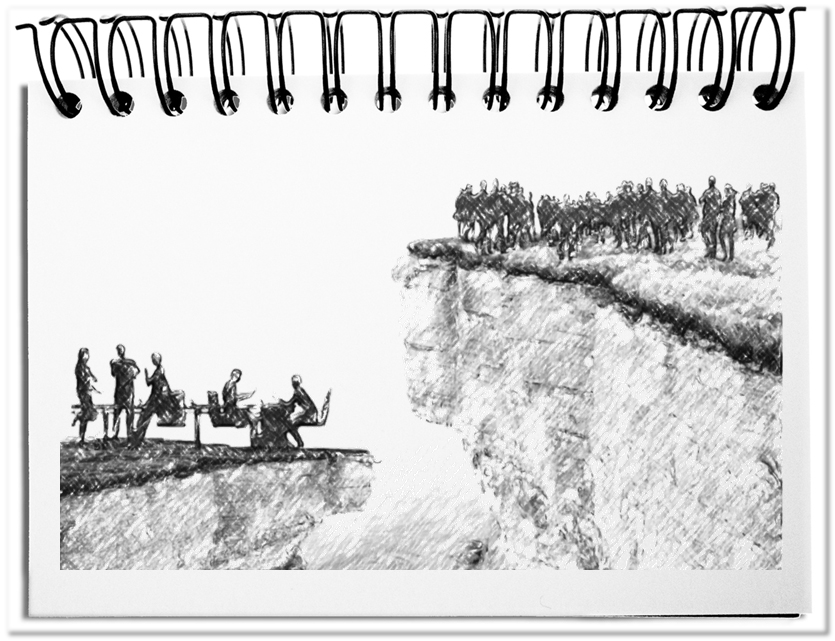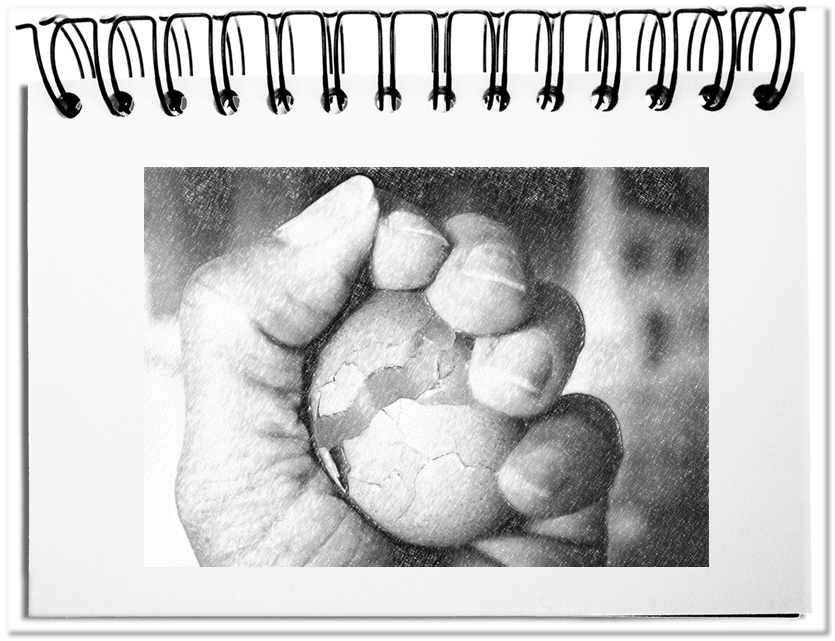The world changes the Homo sapiens and the Homo sapiens changes the world. And for sure these alterations happened with pain. Who really knows how many people burned their fingers with the discovery of the fire or struck their fingers painfully in the invention of hand axes. Innumerable humans paid with their life the spreading and the changing of religions and political systems. If today enterprises introduce huge changes, many employees are concerned. Nevertheless the leading team makes again and again the largest error in Change management.
Everything starts with change pressure. This results from the will for change or the psychological strain of the management team. Depending on whether the decision makers want to new or away from unwanted procedures and behavior, they have to overcome different hurdles.
Heading for new shores contains much positive energy. This eases the definition of the direction. The way out of problematic routines has to overcome more negative energy, in order to find its way. In both cases it is important to bring the strategy into a structure, so that the concerned people of the involved areas understand what has to be achieved.
The participation is an important pre-requisite, so that the new ideas have at all an opportunity to be realized. For this purpose, the integration of the people, who have to change, is crucial at an as early as possible stage. The transformation, in which the target group participates in the development, can be easier realized.
Change always happens in the mind of individual people. The proverbial „Nuremberg funnel” unfortunately does not exist. Everybody has to achieve the transformation by themselves. Managers have no other chance than ensuring attractive perspectives for all people.
Some management teams believe that it is sufficient to define the direction. The employees have no other choice than going along with the change. Unfortunately this is not the way it goes. The resistances that unfold unnoticed in the daily business can prevent the complete initiative.
Many limit themselves to lavish marketing and communication measures. They hope that the prepared messages convince the employees to join in. For an inexplicable reason, they however avoid the direct contact to the target group. Therefore it is important to establish feedback channels that allow determining difficulties before they grow and than will only be dissolved with very large expenditure.
Effective Change management worries about the smooth operational sequence of the activities. For this purpose the direct contact to the working groups and the target people is important. The biggest mistake in Change management that the leadership team can make is to stay away from the target group during the changes by only involving representatives. That way you do not get the necessary feedback that would facilitate to adapt oneself to the new world for all involved people.
The following aspects lead to hurdles and abysses that overload needlessly the transformation.
- Too little information,
- Too little participation,
- Too little cooperation and
- Too little listening to the concerned people.
Bottom line: The biggest mistake in the Change management is not to consider the target areas. Frequent publications and official endorsement by the decision makers as well as an intact mutual exchange of opinions and mental states are the basis for successful changes.


